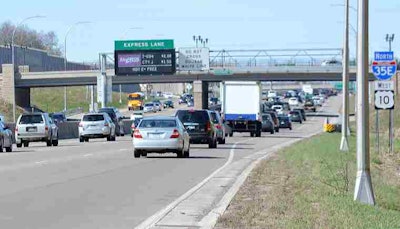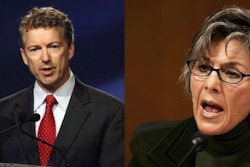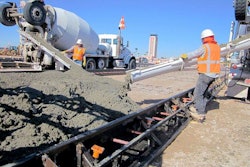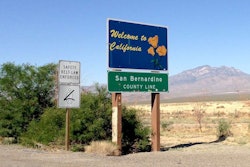
Rep. John Delaney (D-Md.) has been an advocate for bipartisan legislation to use revenues from overhauling the international tax code to pay for infrastructure upgrades. Now he is renewing a push for infrastructure and tax reform this fall, since the administration has not yet come up with a plan to pay for President Trump’s proposed $1 trillion infrastructure plan, The Hill reports.
“They don’t really have a plan to pay for infrastructure,” Delaney told the news agency. “My strategy is to try to force the conversation around how they are going to pay for infrastructure.” Trump’s promise to upgrade U.S. roads, bridges, airports, and other public works has taken a back seat while Congress tackles tax reform, which could be as difficult as healthcare. Delaney thinks repatriation, where tax corporate earnings that have been stored abroad are returned to the U.S., would supply the money to upgrade the country’s infrastructure.
Delaney introduced two bipartisan bills, along with Rep. Ted Yoho (R-Fla.) and Rep. Rodney Davis (R-Ill.), that would tap into an estimated $2 trillion in earnings that are being stored overseas. One measure would establish a $50 billion infrastructure bank to finance local transportation, energy, water, and education projects, which would put an emphasis on public-private partnerships and would be funded through the sale of 50-year bonds to U.S. corporations that want to repatriate overseas earnings. The bill would allow the companies to bring a certain amount of overseas earnings back to the U.S. with no federal tax liability for every $1 invested in the bonds
The other bill would allow U.S. multinational corporations to repatriate earnings at a one-time tax of 8.75 percent rather than the current 35 percent rate and deferral option. The revenues would be used for infrastructure improvements, with an estimated $120 billion going to the Highway Trust Fund, $50 billion going to an infrastructure bank, and $25 million going to a rural infrastructure pilot program. The legislation also sets an 18-month deadline for international tax reform and creates a panel to explore long-term funding solutions for financing the Highway Trust Fund.
“The idea of bipartisanship is to give each side a win,” Delaney told The Hill. “Infrastructure has been a big part of the Democratic platform for a long time, and fixing this international tax system — which is the most uncompetitive part of our tax code — is in fact something Republicans have talked more about.”
Trump initially wanted to link tax reform and infrastructure together, but recently backed off the idea.
Delaney plans to discuss the legislation with colleagues and make it part of presidential campaign platform, since he announced his decision to run for President in 2020. Republican co-sponsors brought the idea to Vice President Pence.









